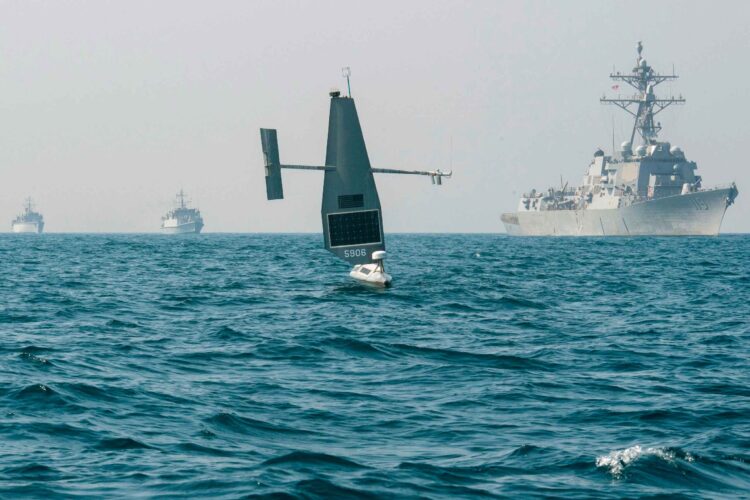Navy Admiral Samuel Paparo, chief of the US Indo-Pacific Command (INDOPACOM), revealed details of the US “hellscape” defense plan to prevent China from taking Taiwan in an interview with the Washington Post on Monday.
Paparo stated, “I want to turn the Taiwan Strait into an unmanned hellscape using a number of classified capabilities.”
Learn the benefits of becoming a Valuetainment Member and subscribe today!
The strategy involves deploying thousands of unmanned submarines, aerial drones, and surface ships to delay a marine invasion by Chinese forces. In May, the Pentagon announced advances with its Replicator initiative, which aims to provide unmanned vehicles for the defense of Taiwan against China. According to the DOD press release, “The first tranche of Replicator capabilities include uncrewed surface vehicles (USV), uncrewed aerial systems (UAS) and counter-uncrewed aerial systems (c-UAS).” Paparo commented on the initiative’s development, saying, “This is a critical step in delivering the capabilities we need, at the scale and speed we need, to continue securing a free and open Indo-Pacific.”
Since the inauguration of Taiwanese President Lai Ching-te on May 20, China has continued conducting military exercises around Taiwan, which according to some resemble a blockade. In late May, Chinese forces took part in drills dubbed “Joint Sword-2024A,” following the “Joint Sword” exercises by China around Taiwan in April 2023. Alongside military threats, China has exerted economic pressure on Taiwan by removing preferential status on 134 imports from Taiwan in late May. Although China and Hong Kong remain the most popular destination of Taiwanese exports, economic tensions have reduced trade between the countries in recent years.
The sovereignty of Taiwan has been a source of contention since leaders of the Nationalist Kuomintang (KMT) fled the Chinese mainland to form the Republic of China (ROC) in Taiwan in 1949. The People’s Republic of China (PRC) maintains a “One China” principle, considering Taiwan a part of the PRC.
The US officially recognizes the “One China” principle but maintains an unofficial relationship with Taiwan, forming a nuanced diplomatic strategy. In May, Taiwan exported $8.3 billion in goods to the US, including semiconductors from the industry-dominant Taiwan Semiconductor Manufacturing Company. The company sells goods to Apple, AMD, Nvidia, and Qualcomm, causing many to note the potential economic and national security risk of China taking control of the company.



















Add comment